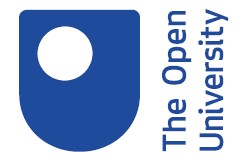In the second of two articles, Robin Webber-Jones outlines what a place-sensitive skills policy for the Oxford to Cambridge Growth Corridor should look like.
Robin introduces three guiding design principles, explores how skills and place can drive inclusion across the region, sets out clear measures of success, and proposes a practical agenda for the next 24 months.
This is more than a pipeline problem; it’s a systems problem. The Oxford to Cambridge Growth Corridor’s advantage is cumulative: research councils and corporate R&D gather around strong colleges and universities; high-growth firms draw in global talent; specialist suppliers co-locate; and investors respond to these signals. If any one part – housing, transport, lab space, or training capacity – falls behind, the whole system slows.
So what kind of skills policy does the Corridor need?
Three design principles
1. Build connected clusters, not isolated hotspots.
The Corridor’s productivity premium depends on its interlinked specialisms — Oxford, Milton Keynes, Bedford, Cambridge and beyond. Skills must be treated as a network, with shared apprenticeship standards, stackable micro-credentials, and region-wide labour market intelligence. East West Rail should be seen not just as a transport scheme, but as a skills mobility platform that widens training commutes and scale-up recruitment.
2. Overweight the “middle layer.”
Doctoral and founder talent is visible, but real bottlenecks come from shortages in technician and professional roles that scale science into product. Employers across life sciences highlight deficits in GMP-ready technicians, QA/RA specialists, and bioprocess engineers. By strengthening employer-led curricula with FE colleges (such as The Bedford College Group), universities, and private providers, the Corridor can turn a vulnerability into an edge. Indeed, The Bedford College Group’s Cross-Regional Construction Technical Excellence College can and will help to be a catalyst in this.
3. Pair skills investment with affordability and civic capacity.
Agglomeration benefits collapse if people can’t afford to live near opportunity. Housing undersupply has pushed up costs, narrowing access to talent. The original NIC vision linked housing delivery with economic strategy. That coupling should be preserved, alongside long-term frameworks that give providers and employers confidence to co-invest.
Skills + place as an inclusion strategy
Some argue the Corridor risks widening divides with “places that don’t matter.” As Andrés Rodríguez-Pose warns, neglecting left-behind areas fuels political backlash. The solution involves linking growth regions to hinterlands via commuting, supplier chains, and training partnerships, while directly investing in lagging towns. For the Arc, that means portable qualifications, work-based entry routes into high-tech sectors, and distributed training hubs along the rail line.
What success looks like
If we get the system design right, five things will move together:
- Faster hiring in critical mid-tier roles.
- Greater labour mobility across the Growth Corridor.
- Higher scale-up survival rates.
- More affordable housing for early-career talent.
- Broader participation through stackable credentials.
A pragmatic agenda for the next 24 months
- Create a Corridor Skills Compact — a time-bound agreement between employers and providers to co-design curricula and guarantee interviews for completers.
- Fund mobile training cohorts that move with lab and clean-room expansions.
- Treat East West Rail stations as skills hubs — co-locating training, incubators and childcare.
- Stabilise planning for key-worker and graduate housing, linking lab approvals to mixed-tenure homes with reserved units for early-career researchers and technicians.
Get the system right, and the region becomes a globally distinctive model of inclusive, science-led growth. Get it wrong, and we’ll have poured concrete but missed the point. Skills are what will save us from that.
Robin Webber-Jones is the Executive Director for Curriculum at The Bedford College Group and member of the Arc Universities Group Skills & Talent Steering Group. Robin has over 20 years’ leadership experience across FE, HE and skills, including senior roles at Derby, Sheffield and Stamford.
Read Robin’s first article: Skills & place in the Oxford to Cambridge Growth Corridor: why they can’t be separated here
Register to attend the Skills for the Growth Corridor Summit on 12th December 2025








